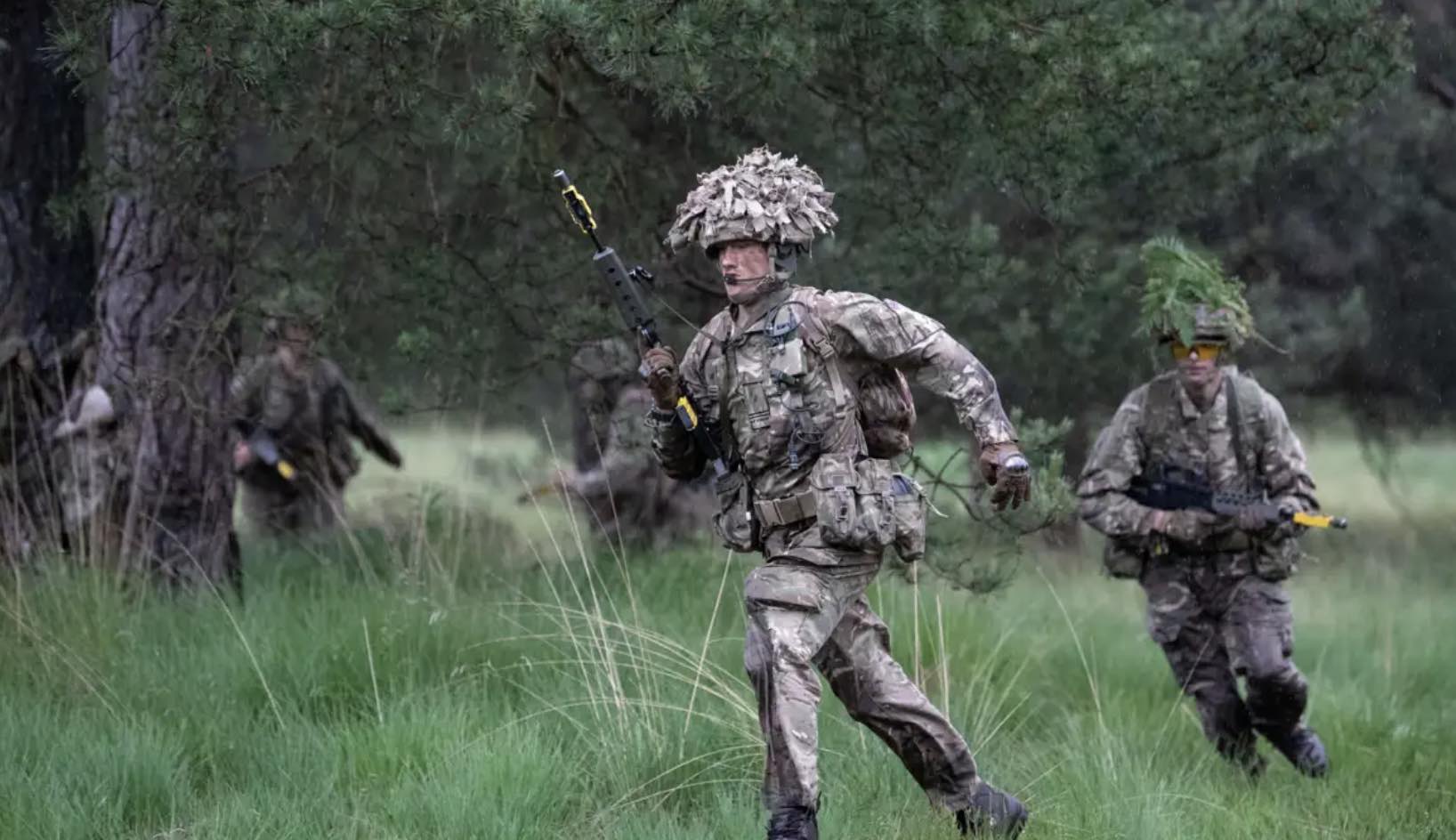


Last week, 140 UK university officer cadets from Northumbria found themselves in Sennelager, Germany, doing more than learning the rudiments of military discipline: they were demonstrating something essential, something sturdy at the core of British public life. In a four-day exercise under the British Army’s Officer Training Corps banner, these students, each juggling law, medicine, engineering, sports science or other demanding degree fields, did not merely confront mock danger—they embraced responsibility.
Sennelager’s terrain is no leafy campus lawn. It is a place where live-fire ranges, bayonet drills, offensive and defensive tasks test not just muscle and bearing, but judgement, stamina and peer leadership. For cadets used to essays, lectures and lab deadlines, the shift from theoretical effort to real-world pressure must have been profound. It is here that the OTC (Officer Training Corps) demonstrates its worth: not as an extracurricular afterthought, but as a forge for leadership in modern Britain.
Watching these young men and women rotate through a 24-hour schedule of platoon tasks, weapons drills and command exercises, one sees the revival of old virtues—duty, cohesion, mutual reliance. The exercise was not glamour, but grit. A cadet crouches with a GP machinegun; another advances with a bayonet; a third relays orders over a radio in dense woodland—all under the eye of seasoned instructors. These are the moments where the mark of an officer is honed: calm in chaos, decision in confusion, camaraderie under strain.
Economic, political or social arguments aside, there is something morally uplifting about young people choosing to test themselves. For cadets like Euan Hanson or Danielle Johnstone—with mechanical engineering, law, medicine or sports science on their schedules—this is an act of self-investment. Even more: it’s an investment in a nation that values leadership, not just intellect; service, not just success. When the call of national defence or public good grows faint in everyday conversation, it is precisely this kind of engagement that reminds us why institutions like the OTC still matter.
Yet the gains aren’t just moral. Britain’s future security, its capacity for global influence, rests in part on citizens who understand what it means to lead. The exercises in Sennelager aren’t about preparing all cadets for combat; rather, they teach them discipline, strategic thinking, teamwork and resilience—skills highly transferable to public service, business leadership, academia and civil society. A medic who’s grasped urgency under fire; an engineer whose sense of logistical complexity was sharpened in the field—these are citizens more capable in whatever path they choose.
Moreover, the diversity of this group deserves special praise. The fact that students from law, medicine, engineering and sport-and-exercise science all walk the same patrols, carry the same kit and share the same bivouac shelters is significant. It says people of different talents, priorities and backgrounds can unite in purpose. That unity is exactly the sort of social glue that modern Britain sometimes appears to risk losing. The OTC, in this exercise, is at once teaching soldiering and community building.
There is also an underappreciated diplomatic or strategic layer: training abroad, with unfamiliar terrain and under realistic military regimes, offers cadets a broadened sense of Britain’s role in a global context. Germany’s Sennelager, with its well-established ranges and combined arms history, provides a standard against which performance can be measured and improved. Operating in such an environment reminds these cadets that leadership is not local or parochial but often international—where rules, expectations and stakes differ.
The public perception of military service has shifted over recent decades. War is less present in daily media, conscription is gone, and yet the demand for capable, self-confident leaders remains. Many worry that academic specialization and safe environments have eroded risk-taking, lowered thresholds of discomfort, and diminished exposure to adversity. The Northumbrian cadets’ exercise does something corrective. It reintroduces measured risk, demands physical courage, incentivises accountability—and thus becomes more than training. It becomes character building at scale.
One might ask: for whom is all this preparation taking place? Not simply for those who will don a uniform in years to come, but for society itself. A doctor who has led a platoon, a lawyer who has navigated the chaos of a field exercise, an engineer who has calculated under fire—these are people likely to carry forward a sense of service, patience, teamwork and respect for hierarchy. Even for cadets who move into non-military careers, the intangible dividends will include confidence, discipline and ethical clarity.
In an age of technological rapidity and cultural fragmentation, institutions that teach responsibility and leadership are anchors. The Northumbria OTC’s German exercise is more than a drill: it is a statement about what Britain can still do; where value still lies. Let this not be dismissed as a niche or a vestige of the past. Rather, let it serve as a model. Expand opportunity, not shrink it. Encourage service, not insulate from it. Remind young people that universities need not be silos of abstraction, but platforms for leadership in action.
What the British Army has done in Sennelager is to provide something simple, powerful—and increasingly rare: the chance to grow, to lead, to test limits. In doing so, it strengthens not only those cadets, but the institutions they will one day serve. And that in turn strengthens the Britain they will inherit.
Pride and Precision on Parade as Britain’s Youngest Soldiers Graduate in Harrogate